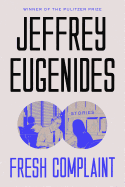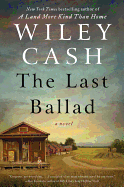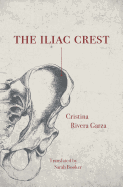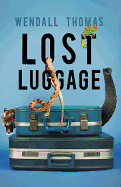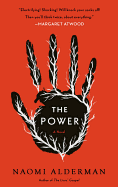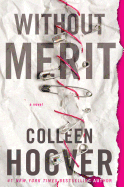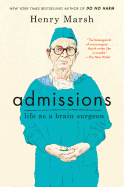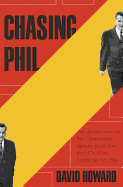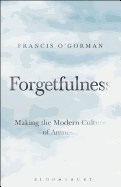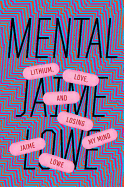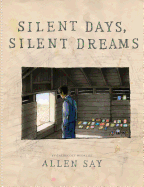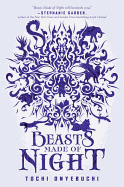 |
| photo: Chad Griffith |
Colleen Hoover is the author of 14 novels and winner of the Goodreads Choice Award for Best Romance twice--for Confess in 2015 and It Ends with Us in 2016. Confess was adapted into a seven-episode online series. In 2015, Hoover and her family founded The Bookworm Box, a monthly subscription service offering signed novels donated by authors; all profits go to various charities. Hoover lives in Texas with her husband and their three boys. Her new novel, Without Merit (Atria), is reviewed below.
Within the last decade, the genre term New Adult was coined to denote fiction similar to young adult but published and marketed to adults. One of the writers credited with creating this genre is Colleen Hoover, who started her writing career in the most unexpected of circumstances.
Inspired by some song lyrics, Hoover began what she thought would be a short story. She recalled, "I would let the girls I worked with read it. My boss at the time would beg me to write on my lunch break and finish the chapter." Hoover had conceded to her day job in social work when she believed her lifelong dream of writing a book was futile. Married with small children and bills to pay, she dropped her college writing major for something she thought would be more lucrative. She said, "I found an old MySpace post a couple years ago that I wrote back in 2005. It talked about how I did a lot of research on what authors make and how long it takes to write a book. I wrote, 'I'm just going to let this dream go; it's never going to happen; I'm stressing myself out because I haven't done it yet, so I'm going to focus on my kids and not worry about it.' I think letting that go and not making it my life goal kind of helped me. Then there was no pressure."
Also helping her were the colleagues who eagerly awaited the next chapters. Hoover wasn't striving for anything grand with her story, she said, "it was just something fun I was doing for [my friends]; I got a big kick out of it because they were enjoying something I wrote." The final important component in transforming her "fun" pastime into the New York Times bestselling title Slammed was her grandmother's 2011 Christmas present. She explained, "My grandmother had gotten a Kindle and we couldn't figure out how to get the story I wrote onto it. I did some research online, and 30 minutes later I had it on Amazon. It was just a Word document I uploaded with their pre-created cover." Once the e-book was listed, Hoover decided it wouldn't hurt to let others know. "I posted on Facebook and a few of my friends downloaded it; they read it, shared it with their friends, and it just kind of snowballed. I didn't put a penny into marketing. Five months later it hit the New York Times simply by word of mouth. It was insane."
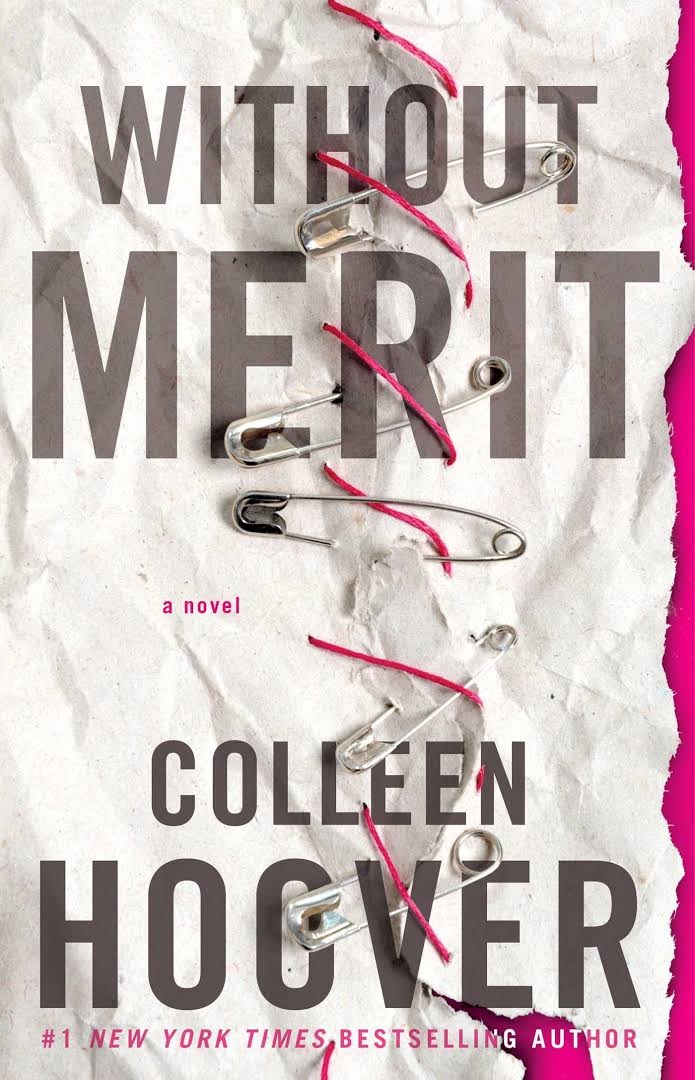 Slammed's success ignited her second book, Point of Retreat, and before Hoover knew what hit her, she had two books on the New York Times bestseller list. Readers were not the only people taking notice: "I started getting calls from publishers, and I didn't have an agent at the time. I didn't know what to expect or what offers to entertain." Uncertain as to whether she could continue to deliver books--and whether she wanted to relinquish control of her writing--Hoover shied away from commitments for manuscripts not yet written. Atria bought the paperback rights to Slammed and Point of Retreat without requiring anything further. She self-published her third book, Hopeless, and again sold the paperback rights to Atria. This time, though, they won her over: "I really, really loved them. My editor was just great. So I've done everything with them since and I couldn't be happier."
Slammed's success ignited her second book, Point of Retreat, and before Hoover knew what hit her, she had two books on the New York Times bestseller list. Readers were not the only people taking notice: "I started getting calls from publishers, and I didn't have an agent at the time. I didn't know what to expect or what offers to entertain." Uncertain as to whether she could continue to deliver books--and whether she wanted to relinquish control of her writing--Hoover shied away from commitments for manuscripts not yet written. Atria bought the paperback rights to Slammed and Point of Retreat without requiring anything further. She self-published her third book, Hopeless, and again sold the paperback rights to Atria. This time, though, they won her over: "I really, really loved them. My editor was just great. So I've done everything with them since and I couldn't be happier."
The most recent book Hoover has written for Atria is Without Merit, the story of Merit, a teenage girl in a dysfunctional family who comes to the end of her rope with all her family's lies. In the past, Hoover has said that she inadvertently puts herself into all of her characters. Merit is the exception to that rule, though. Hoover explained, "There's not a lot of me in her. I had a very--I wouldn't say perfect but close to perfect--childhood. Growing up I had a great relationship with my sisters and my parents; we didn't keep secrets; we were very open. I wrote her almost as the opposite of my teenage self."
While Merit may not have much in common with her creator, the strange home she lives in--a former church--has some ties to Hoover, who said, "We recently built a house. When we went to the builders, the first thing I said was, 'I want an ugly house. I want the inside to have everything I want, but the outside I just want a rectangle building.' Once they built it, I realized, 'this looks exactly like a church. All we're missing is the steeple.' So we kind of joke that our house is our church." Merit's family may have some unconscious parallels to Hoover's as well: "We live in a small town in conservative East Texas. I've lived here my whole life, but somehow came out a very hardcore liberal. I get along with everyone, but it's kind of funny that we're the crazy liberal family with the scary clown head hanging on the living room wall."
Crazy just may be the secret in Hoover's writing recipe. Some might find her nontraditional approaches unusual, but who can argue when they work so well? She's included music, illustrations and slam poetry in her stories; adapted a book for an online series; and views technology as a way to enhance books: "We have so much more at our fingertips to experience reading in a whole new way. I think we're just at that beginning." And for someone who credits technology for her success, this attitude is fitting. Hoover added, "I feel like if it weren't for Facebook and social media, I wouldn't have a career in writing."
Colleen Hoover definitely has a strong career with momentum and many fans behind her. Despite the continued success and the publication of Without Merit, her 14th novel, she said, "Every day I still wonder, 'How did this happen?' " Maybe it's partly what she attributes the New Adult credit to: "Good timing and good luck." But there's also plenty of talent in the mix as well. --Jen Forbus, freelancer
Colleen Hoover: Self-Made Writer
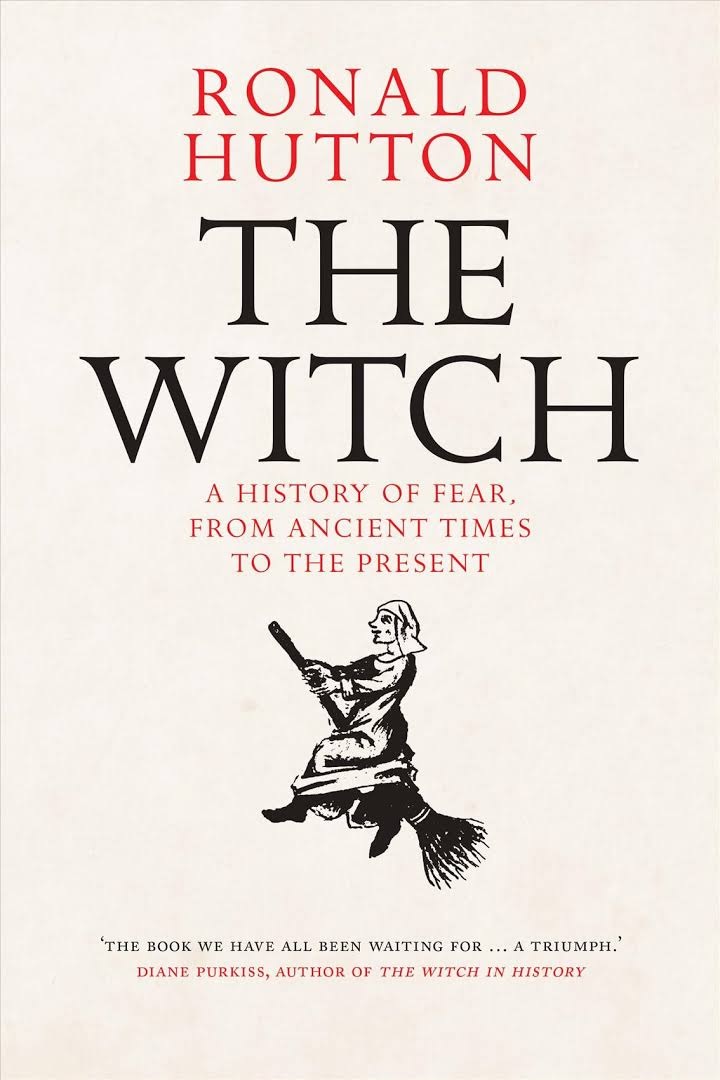 Historian Ronald Hutton gives context to some enduringly hostile perspectives of witches in The Witch: A History of Fear, from Ancient Times to the Present (Yale). Hutton's exhaustive book explores historical histrionics that resulted in violence against (predominately) women accused of witchcraft. There are several global examples, but Hutton focuses on the British perspective, which offers hefty background for the fictional five generations of hereditary witches in Louisa Morgan's novel A Secret History of Witches (Redhook). This page-turning genealogy follows the women of the Orchiére family line as they pass down their craft along with the unfortunate possibility of meeting a violent end, similar to those chronicled by Hutton. The ethics lessons underlying the Orchiére family's most dramatic encounters, together with the devastating hardships the women endure, make room for moral subjectivity that challenges the stale good witch-bad witch trope.
Historian Ronald Hutton gives context to some enduringly hostile perspectives of witches in The Witch: A History of Fear, from Ancient Times to the Present (Yale). Hutton's exhaustive book explores historical histrionics that resulted in violence against (predominately) women accused of witchcraft. There are several global examples, but Hutton focuses on the British perspective, which offers hefty background for the fictional five generations of hereditary witches in Louisa Morgan's novel A Secret History of Witches (Redhook). This page-turning genealogy follows the women of the Orchiére family line as they pass down their craft along with the unfortunate possibility of meeting a violent end, similar to those chronicled by Hutton. The ethics lessons underlying the Orchiére family's most dramatic encounters, together with the devastating hardships the women endure, make room for moral subjectivity that challenges the stale good witch-bad witch trope. 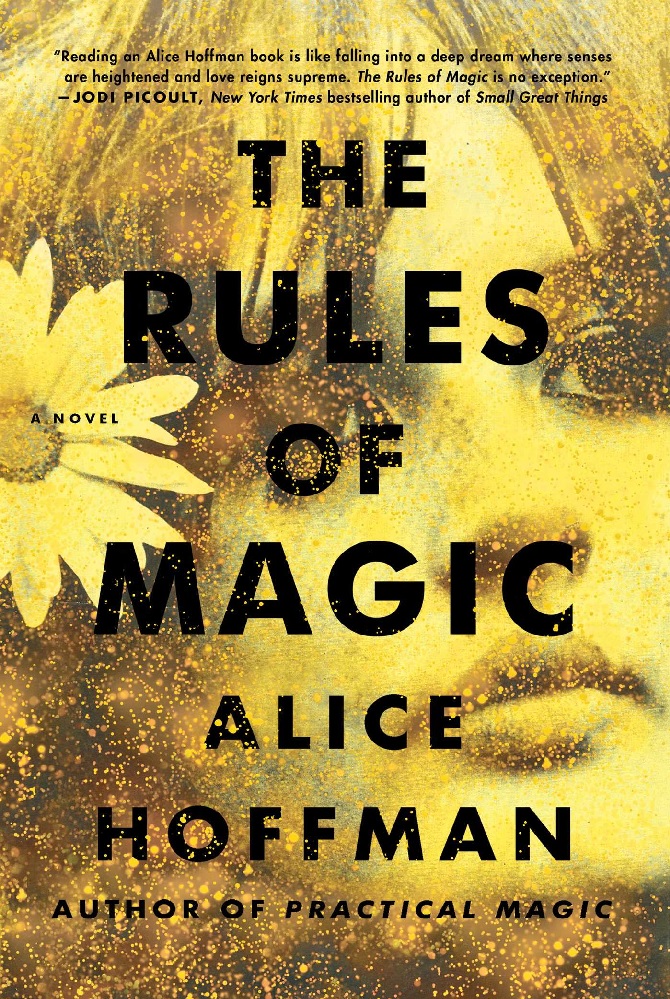 Alice Hoffman also deals with the power of will and responsibility in her family novel The Rules of Magic (Simon & Schuster). This prequel to her bestseller Practical Magic follows siblings Franny, Jet and Vincent as they learn to accept their magical inheritance and challenge the fallibility of fate.
Alice Hoffman also deals with the power of will and responsibility in her family novel The Rules of Magic (Simon & Schuster). This prequel to her bestseller Practical Magic follows siblings Franny, Jet and Vincent as they learn to accept their magical inheritance and challenge the fallibility of fate. 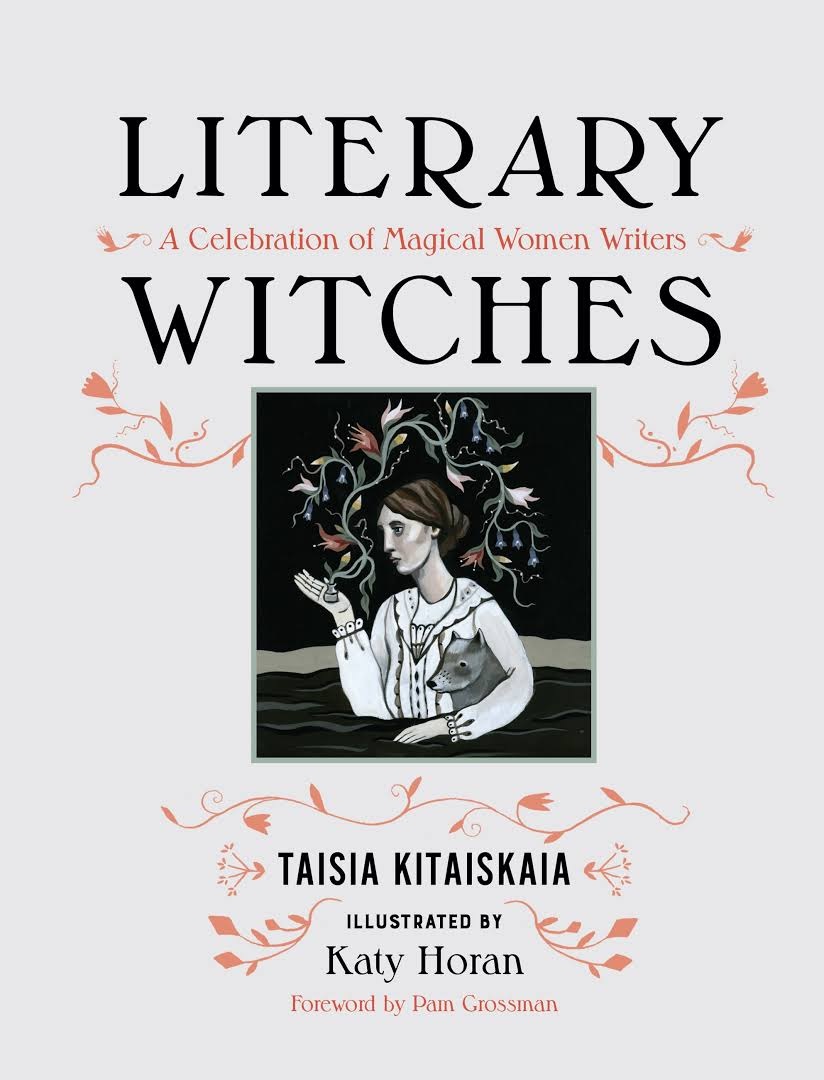 The non-sensationalized daily magic and the struggle to exist outside convention is what Taisia Kitaiskaia honors in her celebration of 30 women authors, Literary Witches (Seal Press). Kitaiskaia crafts mythological identities for each author in this wonderfully broad collection spanning Emily Dickinson to Octavia Butler to Sappho and Mirabai, each illustrated by Katy Horan and elevating witches from warty Halloween decorations to visionary and inspirational literary icons. --Kristianne Huntsberger, partnership marketing manager at Shelf Awareness
The non-sensationalized daily magic and the struggle to exist outside convention is what Taisia Kitaiskaia honors in her celebration of 30 women authors, Literary Witches (Seal Press). Kitaiskaia crafts mythological identities for each author in this wonderfully broad collection spanning Emily Dickinson to Octavia Butler to Sappho and Mirabai, each illustrated by Katy Horan and elevating witches from warty Halloween decorations to visionary and inspirational literary icons. --Kristianne Huntsberger, partnership marketing manager at Shelf Awareness



 Slammed's success ignited her second book, Point of Retreat, and before Hoover knew what hit her, she had two books on the New York Times bestseller list. Readers were not the only people taking notice: "I started getting calls from publishers, and I didn't have an agent at the time. I didn't know what to expect or what offers to entertain." Uncertain as to whether she could continue to deliver books--and whether she wanted to relinquish control of her writing--Hoover shied away from commitments for manuscripts not yet written. Atria bought the paperback rights to Slammed and Point of Retreat without requiring anything further. She self-published her third book, Hopeless, and again sold the paperback rights to Atria. This time, though, they won her over: "I really, really loved them. My editor was just great. So I've done everything with them since and I couldn't be happier."
Slammed's success ignited her second book, Point of Retreat, and before Hoover knew what hit her, she had two books on the New York Times bestseller list. Readers were not the only people taking notice: "I started getting calls from publishers, and I didn't have an agent at the time. I didn't know what to expect or what offers to entertain." Uncertain as to whether she could continue to deliver books--and whether she wanted to relinquish control of her writing--Hoover shied away from commitments for manuscripts not yet written. Atria bought the paperback rights to Slammed and Point of Retreat without requiring anything further. She self-published her third book, Hopeless, and again sold the paperback rights to Atria. This time, though, they won her over: "I really, really loved them. My editor was just great. So I've done everything with them since and I couldn't be happier." 